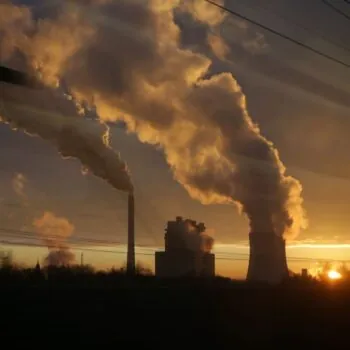G7 countries shift away from coal, despite trump rhetoric. Highlights from the G7 coal scorecard include:
- The structural transition away from coal remains strong across the G7, with increased political commitments by national and regional governments.
- Canada, France, the UK, Alberta, New York State, Oregon and Berlin are all now introducing policy frameworks to ensure the complete phase out of coal-fired power generation. Italy is currently considering a similar policy as part of its new national energy strategy.
- The recent ‘pro-coal’ policy moves by the Trump Administration are at odds with this broader direction of travel and are not aligned with the underlying structural shifts underway in the electricity sector in the USA, which has already seen 116GW of coal capacity confirm its retirement since 2010.
- As a result, the Trump Administration appears to be trying to turn back the tide in its efforts to create a ‘pro-coal’ agenda.
G7 Coal Scorecard ranking
Compared to May 2016, there has been a change in the rankings in the G7 coal scorecard:
The USA drops from first to fourth position in the G7 coal scorecard ranking. This reflects the recent federal government actions of the new Trump Administration that seek to support coal both domestically and internationally.
- Contrary to this ‘pro-coal’ policy agenda, the USA continues to score the highest of all the G7 countries in respect to the alignment of market drivers. The ageing US coal fleet is faced with continued competition from gas and renewables. These point to a continued transition away from coal in the electricity sector despite attempted policy interventions.
- The majority of the proposed policy changes in the USA are currently still only statements of intent which will be subject to lengthy implementation timelines and legal challenge. As a consequence, the USA sits in a mid-table position in the G7 coal scorecard ranking. Its positive market dynamics continue to provide a foundation for proactive management of the transition away from coal, a challenge which is increasingly being taken on by individual states.
Despite maintaining its positive scores from 2016, the UK has been overtaken in the ranking by France and Canada as they also take forward domestic commitments to phase out coal. All three countries are taking similar positive steps and are well placed to lead wider international cooperation on coal. France and Canada now take first and second place in the ranking respectively following the slide in US performance.
Italy and Germany have also both improved their performance in the G7 coal scorecard over the past 12 months and are taking steps towards coal phase out commitments.
Japan remains in last place with no change in score, in an unwelcome position as the sole G7 country actively seeking to build new coal power plants. But even it has now seen its first cancellations of proposed new coal plants, totaling 2.2GW.
Chris Littlecott, Programme Leader at E3G said:
“The international community should look at the realities of the continuing transition away from coal across the G7 and within the USA and avoid getting caught up in the pro-coal rhetoric of the Trump Administration.”
“When it comes to international leadership, Prime Minister Trudeau and President Macron have both made strong commitments to delivering a domestic coal phase out. They can form a dynamic partnership to drive forward international progress on coal during their G7 Presidencies in the next two years.”
Taylor Dimsdale, Head of Research at E3G said:
“Coal plants continue to retire in the United States because they simply don’t make economic sense anymore. They also happen to be bad for the health of Americans and bad for the climate. While they can’t change the market fundamentals, the new administration and Congress can both play an important role in supporting sustainable economic development in regions that are most affected, and on making sure retired coal miners have access to health care and secure pensions.”
Graphic

Details
The third edition of the E3G G7 coal scorecard assesses how G7 countries are addressing the challenge of reducing coal-fired power generation. It analyses the market and policy contexts of their domestic use of coal and their international influence over the past 12 months. It also provides an assessment of the situation in the USA and the initial impact of the new Trump Administration.
Investment trends across the G7 over the past 12 months confirm the continuing transition away from coal.
Cancelled: An additional 7 gigawatt (GW) of proposed new coal plant capacity has been cancelled, now totaling 76GW since 2010.
Already retired: Overall, 107 GW of coal capacity has already closed since 2010. Coal power plant retirements are the dominant structural dynamic in the electricity sector, a trend shared by the rest of the G7 beyond Japan.
Planned retirements: A further 25GW of existing coal plants have been added to the retirement pipeline for the coming years, which now totals 84GW. 54GW of coal capacity has closure dates announced, while 30GW is now set to close as a result of political commitments by national and regional governments.
ENDS
Notes to Editors
E3G is an independent climate change think tank operating to accelerate the global transition to a low carbon economy. E3G specialises in climate diplomacy, climate risk, energy policy and climate finance.
In 2016, E3G was ranked the number one environmental think tank in the UK by the Go To Think Tank Index, second in Europe and sixth in the World.


